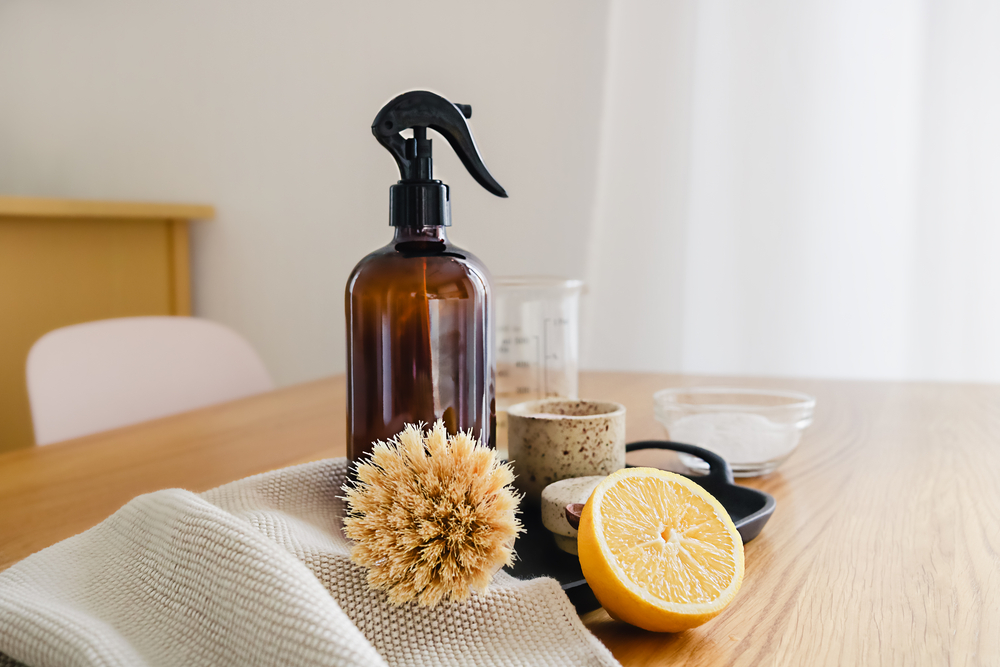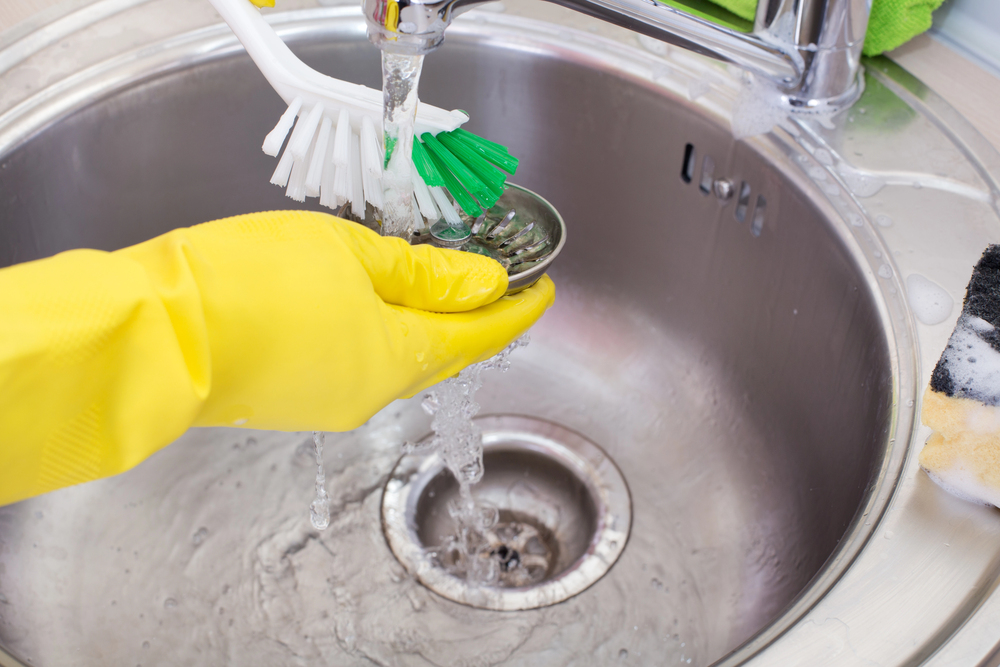Hard water stains are a common nuisance for homeowners, tarnishing the appearance of faucets, shower doors, and sinks. These unsightly marks form when water, rich in minerals like calcium and magnesium, evaporates, leaving behind mineral deposits. While hard water may not pose a significant health risk, it can lead to costly damage if neglected. Understanding how to effectively deal with these stains is essential for maintaining the beauty and functionality of a home.
Understanding Hard Water
Hard water refers to water that contains high levels of dissolved minerals, particularly calcium and magnesium. This condition occurs naturally when groundwater moves through soil and rock formations, picking up minerals along the way. While not harmful to health, hard water can have undesirable effects on plumbing and appliances. Homeowners may notice their skin feeling dry and dingy laundry as a result of these minerals in their water. When hard water evaporates, it leaves behind stubborn stains on surfaces such as tiles, glass, and metals.
The presence of these stains can diminish the aesthetic appeal of your home, indicating a deeper problem that might require intervention. Identifying the source of hard water is the first step in addressing it. Properties in areas with limestone, chalk, or gypsum in the groundwater are often more prone to hard water issues. Home testing kits can be used to measure the hardness level of water, helping homeowners understand the extent of the problem and inform them about potential treatments.
Main Causes of Hard Water Stains

Hard water stains can appear on a variety of surfaces, each type forming due to specific causes. In bathrooms, stains may accumulate on faucets, shower doors, and tiles as water splashes occur often. When droplets evaporate, they leave behind the minerals that build up over time. In kitchens, the buildup often affects sinks and countertops, where water usage is frequent, leading to visible residues. Outdoor areas are not exempt from hard water stains, as they can appear on patios, pool tiles, and garden furniture when water splashes or spills occur.
The mineral deposits can be difficult to remove once they’ve established a foothold. Excessive build-up of these stains may corrode fixtures and plumbing systems, necessitating costly repairs. Another contributing factor to the ease of stain formation is improper water filtration systems. Although many homes may rely on municipal water supply systems, if the water is high in calcium and magnesium, the same problems will arise.
Keeping Surfaces Clean and Clear
When it comes to removing hard water stains, various techniques can be employed depending on the severity and surface type. Common household items such as vinegar and baking soda can be particularly effective for light stains. Applying a mix of equal parts vinegar and water to the stained area and scrubbing with a soft brush can lead to remarkable results. The acetic acid in vinegar works by dissolving mineral deposits while being gentle on surfaces. For tougher stains, a paste made from baking soda and water can be created and applied to the affected areas. Allowing the paste to sit for a period before scrubbing can enhance its effectiveness.
After scrubbing, rinsing thoroughly is crucial to prevent any residue from attracting more mineral deposits. Homeowners often seek methods that remove stains and prevent future occurrences. To this end, routine maintenance is key. To effectively remove hard water stains and keep them from reappearing, establishing and following a regular cleaning schedule is highly advisable, as consistent maintenance makes the process much easier and protects surfaces in the long run. This process will help to minimize buildup, making periodic cleanings dawdling chores rather than overwhelming tasks.
Preventive Measures for Hard Water Stains

Preventing hard water stains is more efficient than tackling them after they settle. Assessing the water quality entering a home is a pivotal starting point. Homeowners can opt for water softener systems that can remove calcium and magnesium from the water, softening it before it reaches appliances and fixtures. Installing filtration systems will further help reduce the mineral content responsible for these stains. Regular maintenance of surfaces prone to water stains can enhance the effectiveness of treatment methods.
This includes wiping surfaces dry after use to limit mineral buildup, which reduces the chances of staining over time. Establishing a routine cleaning schedule can assist in sustaining the cleanliness of a home, making it easier to tackle issues before they escalate. Recirculating water systems can be helpful. These systems keep water in circulation, reducing stagnation and evaporation, which decreases the likelihood of hard water stains forming.
Understanding the Costs Involved
Understanding the financial implications of hard water stain removal is crucial for homeowners. While DIY methods may seem feasible, they come with potential hidden costs. Using harsh chemicals or abrasive tools may damage surfaces, leading to more expensive repairs in the long run. It’s critical to assess the specific cleaning methods being utilized to avoid overspending. Investing in water softener systems can have upfront costs and save money by minimizing repairs and prolonging the lifespan of plumbing systems.
Homeowners should consider the potential energy costs associated with appliances that struggle against hard water mineral buildup, as these inefficiencies can lead to higher bills. Investing in long-term solutions, such as hiring professionals for hard water stain removal or investing in filtration and softening systems, is often the best choice, yielding benefits that extend far beyond the initial outlay.
Eco-Friendly Solutions for Hard Water Stains

As awareness of environmental issues grows, many homeowners seek eco-friendly solutions for hard water stain removal. Several natural cleaning agents, such as citric acid and essential oils, have gained popularity in recent years. These options are less harmful to the environment and personal health compared to chemical cleaning products. Creating a paste from citric acid and water has proven effective against hard water stains. Its natural acidity can break down mineral deposits similarly to vinegar while minimizing the impact on the environment.
Essential oils can add a pleasant scent and are often believed to have antimicrobial properties, providing benefits during cleaning. Homemade scrubs made from baking soda can be combined with water or natural oils to create a thorough cleaning solution without relying on harmful chemicals. By utilizing green alternatives, homeowners can effectively neutralize hard water stains while practicing good environmental stewardship.
Hard water stains present a common challenge for homeowners, impacting both aesthetics and functionality within a home. A comprehensive understanding of hard water, its causes, and effective removal strategies is essential for maintaining a clean and attractive space. Homeowners are encouraged to explore various techniques, preventive measures, and eco-friendly options to tackle this persistent issue. By committing to proper maintenance and timely action, stained surfaces can be kept under control.
Related
<!–
–>

